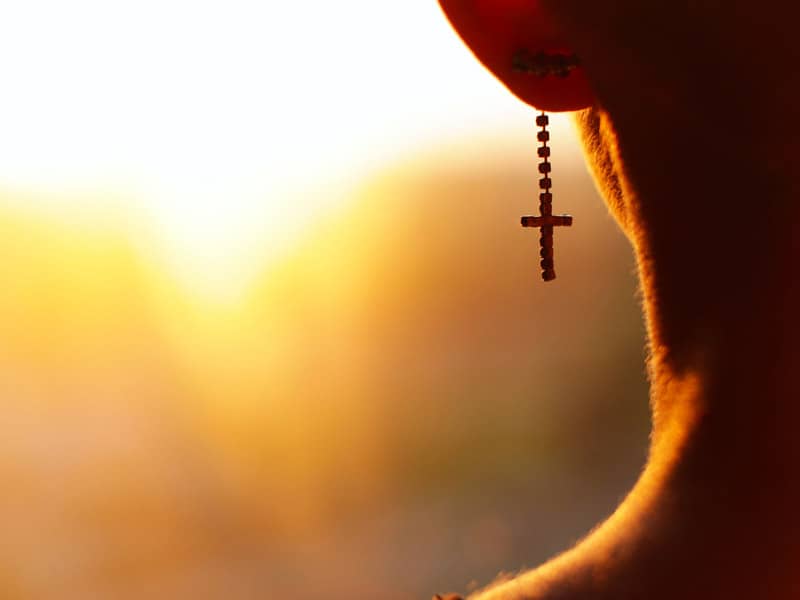This document declared that any attempt to present the Jews as rejected or cursed by God was wrong. It rejected the idea of Jewish guilt for the death of Jesus. It affirmed with the words of the Apostle Paul (Romans 9:4-5) that the divine covenant with the Jewish people has not been broken and is eternal. It condemned anti-Semitism and affirmed that the "spiritual patrimony common to Christians and Jews" should lead to "mutual understanding and respect".
Nostra Aetate ushered in amazing changes in Catholic-Jewish relations around the world, even if the degree to which it was internalized depended on whether Catholics and Jews lived side by side. But it was Pope John Paul II who took this transformation to new heights and who has truly been a hero of the reconciliation process. During his pontificate he has published a number of remarkable Vatican documents relating to the Jewish people. He's hosted many receptions and audiences for Jewish groups. Wherever he has gone on his travels, he has made a point of including Jews in his agenda.
More important, he has spoken extensively and powerfully on this subject--describing and addressing the Jewish people as "the people of God of the Old Covenant never revoked by God" and calling for "joint mission of witness to the Name of One God by Jews and Christians in and for the world."
In so doing he has crossed the "t"s and dotted the "i"s of Nostra Aetate--clarifying categorically that the idea that the church has replaced the Jewish people is invalid and raising profound questions about the appropriateness of proselytizing.
The pope has made profound theological formulations concerning Christianity's relationship with Judaism; he has condemned anti-Semitism ("a sin against God and man"); and he's expressed a profound desire for Christian-Jewish reconciliation. But two powerful, unparalleled events have truly conveyed his commitment to Christian-Jewish reconciliation. These were his visit to Rome's synagogue in 1986 and his pilgrimage to the Holy Land in 2000.
His address at the Rome synagogue is among the most important texts in this revolution in Catholic-Jewish relations--but it was the image of the Pope embracing the rabbi and demonstrating fraternal love for the Jewish community that reached millions who could not be reached by his words.
No less impactful was the Pope's visit to Israel. In order to understand its historic and theological significance we need to recall that the traditional view of the church prior to Nostra Aetate was that the Jews were exiled from their land for their failure to accept the Christian faith and that they were condemned to wander as divine punishment. Thus, the Pope's pilgrimage, with all the aspects of an official state visit and witnessed by millions of people around the globe, demonstrated the repudiation of that idea. Indeed, Pope John Paul II went out of his way to ensure that full diplomatic relations betweeen the Holy See and the State of Israel were established well in advance of his visit to the Holy Land.
The Papal visit to Israel opened their eyes to a changed reality. Not only was the church no longer the enemy--its head is even a sincere friend. To see the Pope at Yad Vashem, the Holocaust Memorial, in tearful solidarity with Jewish suffering; to learn of how he himself had helped to save Jews at that terrible time and subsequently as a priest returned Jewish children from their Christian foster homes back to their Jewish families; to see the Pope at the Western Wall in reverence for Jewish tradition, and asking divine forgiveness for the sins Christians had committed against Jews down the ages--all had a profound impact upon a very wide cross section of Israeli society.
These gestures and their visual message have impacted the way Jews view the Church, but they have also impacted the way Catholics in particular and Christians in general have viewed Judaism.
This is not to deny that there has been tension between the pope and the Jewish community, and sometimes there have been actions that he has taken that have caused us distress. Some of these relat to the role of the Church and its leadership during the Shoah; and there have been actions like the beatifications of Edith Stein, a Jewish convert to Catholicism, murdered by the Nazis; and Pope Pius IX, remembered in Jewish historical memory for having supported the abduction of a young Roman Jew, Edgardo Mortara.
However, I am convinced that none of these have ever been motivated by intentional insensitivity on the part of the Pope-on the contrary.
Obviously, the Pope's first commitment and responsibility has been to his faith and church as he sees them. Nevertheless, the very fact that the beatification of Pope Pius XII have been delayed appears to indicate his sensitivity to Jewish concerns in this regard. However, it seems inevitable that such issues will remain a source of tension between the church and the Jewish people precisely because historical memory and its interpretation are so subjective.
Nevertheless, Pope John Paul II's contribution to a new spirit in Catholic-Jewish relations is unparalleled. In his statement to the American Jewish Committee at one of its leadership meetings with him he declared: "I am convinced, and I am happy to state it on this occasion, that the relationships between Jews and Christians have radically improved in these years. Where there was ignorance and therefore prejudice and stereotypes, there is now growing mutual knowledge, appreciation and respect. There is above all, love between us; that kind of love, I mean, which is for both of us a fundamental injunction of our religious traditions. Love involves understanding. It also involves frankness and the freedom to disagree in a brotherly way where there are reasons for it."
Indeed, to the extent that there is today--in these words of the pope--love, understanding and frankness, in Christian-Jewish relations in general and Catholic-Jewish relations in particular; we owe Pope John Paul II a great debt of gratitude for a remarkable legacy.

